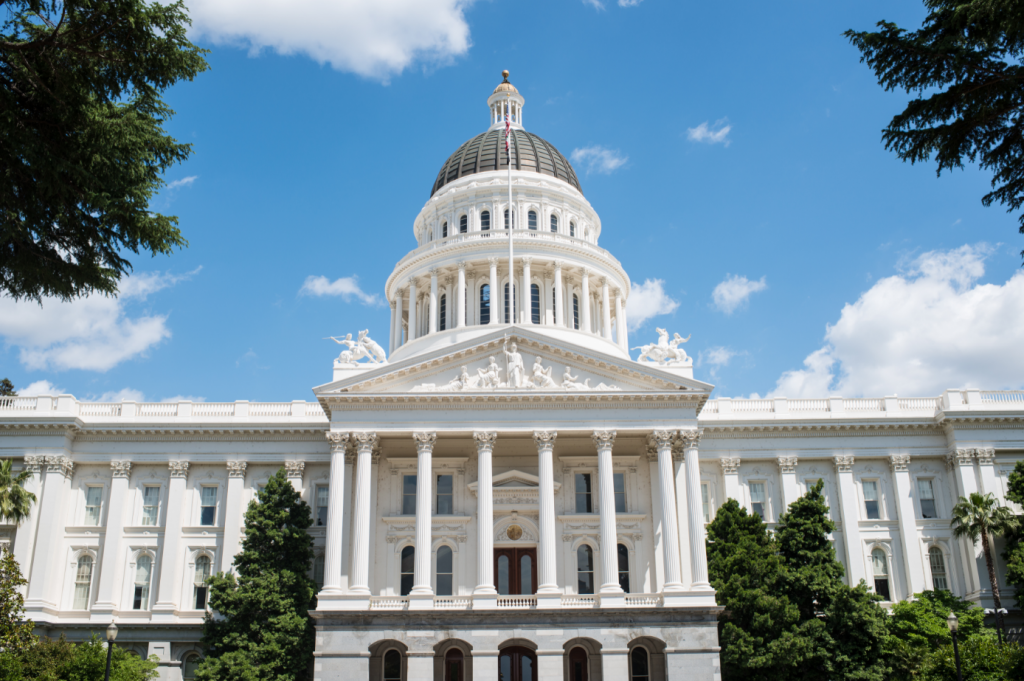California’s Attorney General, Xavier Becerra, has subpoenaed additional records from six Catholic dioceses in the state, including the Archdiocese of Los Angeles.
In addition to Los Angeles, the Archdiocese of San Francisco and the Dioceses of Sacramento, Fresno, Orange, and San Jose have also received subpoenas.
Since May, these dioceses have been cooperating fully with the Attorney General’s request that they voluntarily turn over documents related compliance with state requirements mandating that priests, teachers, and staff report suspected abuse to local law enforcement officials. The Archdiocese and the other dioceses have already provided tens of thousands of pages of information and files to the California Department of Justice.
In a statement, the Archdiocese said that it would “continue to cooperate with the Attorney General’s review,” and expressed confidence that the review will “confirm that the Archdiocese has actively worked for more than two decades to ensure that individuals who are mandated reporters fulfill their obligations under the law, and that our parishes and schools are safe places for all young people in our communities.”
Much of the information the Attorney General is requesting has long been made public by the Archdiocese, beginning with its 2004 Report to the People of God, which has been updated periodically since then, most recently in 2018. In addition, the Archdiocese in 2013 released clergy files related to abuse settlements. The Archdiocese also continues to make public announcements in parishes and schools whenever it receives an abuse allegation involving clergy, lay staff or volunteers.
In its statement, the Archdiocese cited its longstanding commitment to transparency, its support for victim-survivors of abuse, and its strong child-protection policies.
The Archdiocese has a “zero-tolerance” policy of abuse involving minors that applies to clergy, staff and volunteers. Abuse allegations are reported to law enforcement agencies and the Archdiocese works closely with authorities to investigate allegations.
Since 2004, the Archdiocese has trained more than 350,000 adults and more than 165,000 children in abuse-prevention awareness programs. In addition, more than 250,000 adults have been fingerprinted as part of the Archdiocese’s background checks for Church and school personnel and volunteers.
As a result of these measures, new cases of abuse are rare today in the Archdiocese. In December 2018, the Archdiocese reported that over the past decade there have been two cases of misconduct by priests who had served in the Archdiocese of Los Angeles that involved current minors. Those cases had previously been made public at the time the allegations were first received.
In its ongoing support for those abused by members of Church, the Archdiocese in September joined five other California dioceses in a private compensation program that is available now to any person who has been sexually abused as a minor by diocesan priests, no matter when that abuse occurred.
The full statement issued by the Archdiocese follows:
Statement on LA Archdiocese’s Continued Cooperation with the Attorney General
The Archdiocese of Los Angeles has a long-standing commitment to ensure the protection of young people and vulnerable in the almost 600 Catholic parishes and schools serving all of the communities in the Los Angeles, Santa Barbara and Ventura Counties.
At the Attorney General’s request, the Archdiocese, along with five other Catholic dioceses in California, voluntarily provided tens of thousands of pages of information and files, in both paper and electronic formats, to the Department of Justice regarding compliance with the mandated reporting of sexual abuse and our safe environment policies.
Because of our commitment to transparency, the Archdiocese had already made public much of the information that was requested by the Attorney General’s Office, which included the 2004 Report to the People of God and subsequent updates, the 2013 release of priest clergy files and the public announcements of allegations of misconduct that have been made at parishes and schools whenever an allegation is reported to the Archdiocese, whether it is involving clergy, lay staff or volunteers.
The Archdiocese will continue to cooperate with the Attorney General’s review and look forward to meeting with the Attorney General’s Office to establish an ongoing process and timeline to provide any additional information that they may need. We expect that the Attorney General’s review will confirm that the Archdiocese has actively worked for more than two decades to ensure that individuals who are mandated reporters fulfill their obligations under the law, and that our parishes and schools are safe places for all young people in our communities.
The Archdiocese is steadfast in our support for all victim-survivors and remains vigilant in our commitment to protect children from harm. The Archdiocese has a zero-tolerance policy of abuse involving minors, whether by clergy, staff and/or volunteers. The Archdiocese reports any incidents of abuse of which it is aware and works closely with law enforcement agencies to investigate allegations of abuse. In addition, we have established abuse prevention programs for both children and adults in all of our parishes and schools to help ensure the safety and well-being of all in our communities.
Since 2004, the Office of Safeguard the Children of the Archdiocese of Los Angeles has trained more than 350,000 adults in the VIRTUS® child abuse prevention adult awareness programs and more than 165,000 children and young people annually in the children’s program. Over 250,000 adults have been fingerprinted as part of a program of background checks for Church and school personnel and volunteers. The Office of Victims Assistance Ministry of the Archdiocese of Los Angeles has also worked to create a safe and compassionate environment for victims to come forward while ensuring that civil authorities are notified, and victims are provided with counseling and other assistance in the healing process. For more information visit: protect.la-archdiocese.org.

